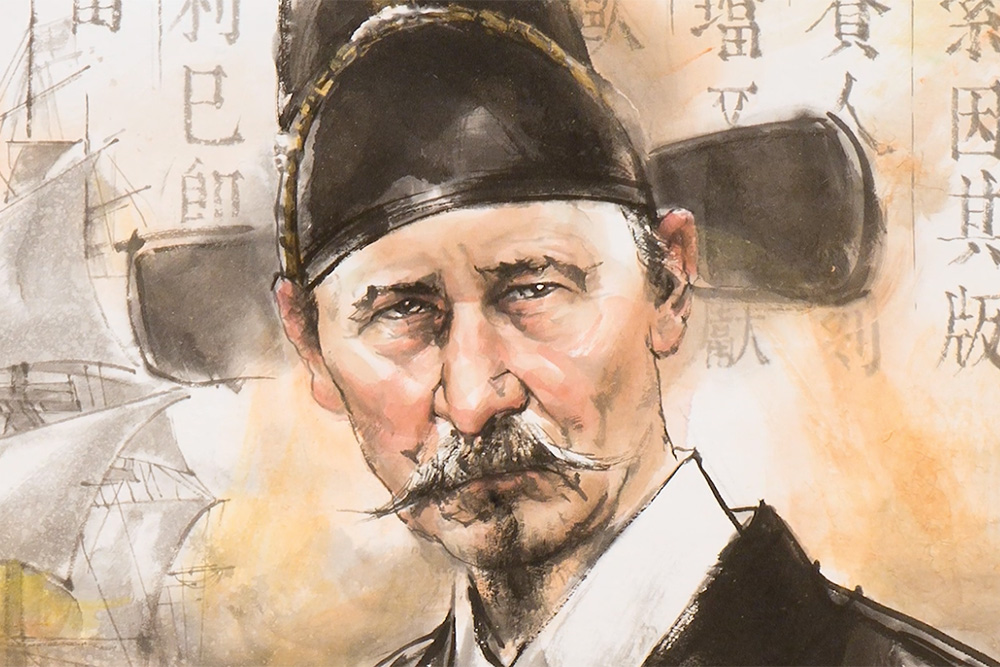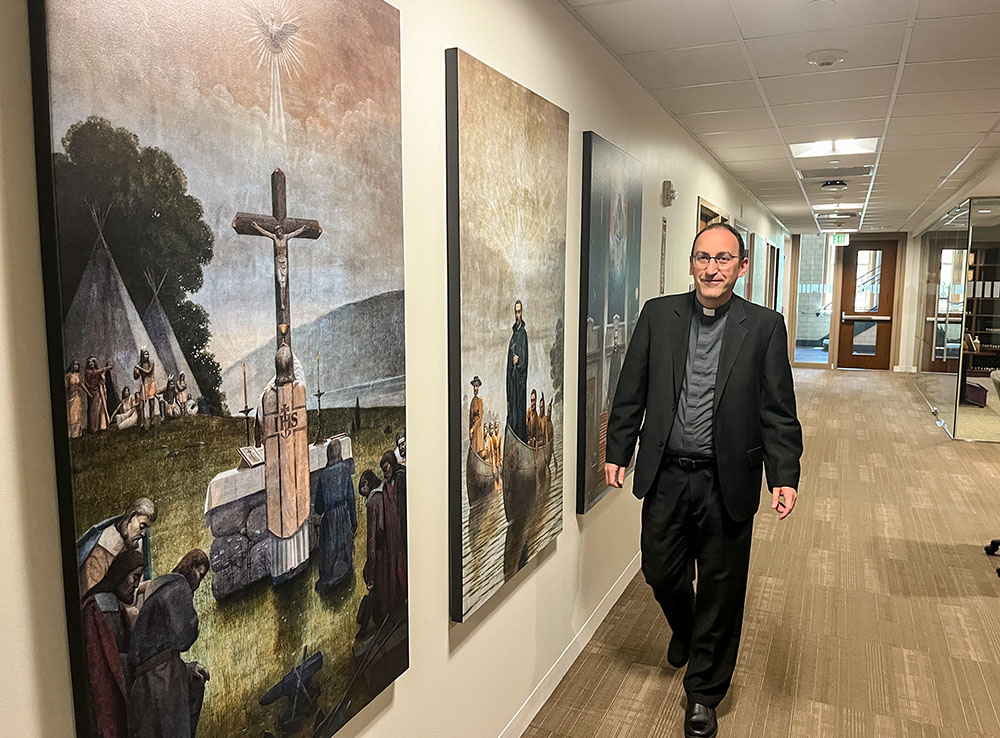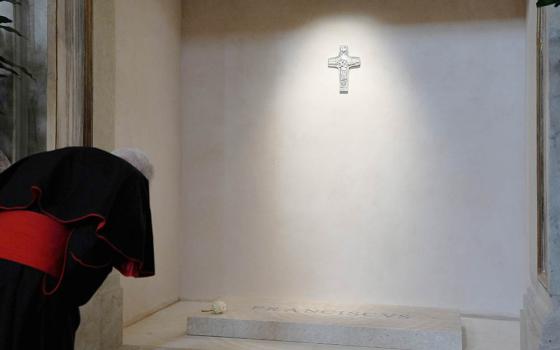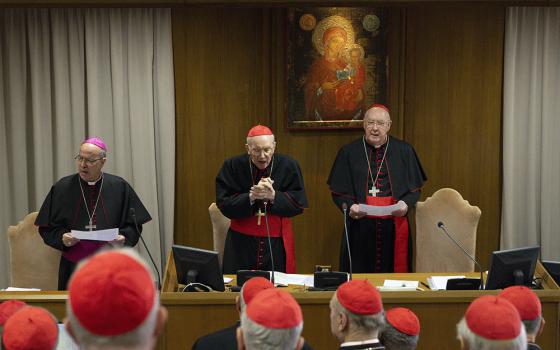
Spanish Jesuit Diego de Pantoja is portrayed as one of the mandarins of the 17th-century Ming dynasty in a 2018 painting, as seen in the documentary film "Diego de Pantoja, SJ: A Bridge Between China and the West." (Courtesy of Boston College Institute for Advanced Jesuit Studies)
Thanks to his musical ability with the harpsichord and his expertise as a cosmographer and cartographer, Spanish Jesuit Diego de Pantoja was one of the first missionaries to enter the Forbidden City of Beijing, where Wanli Emperor honored him as an authentic mandarin, the highest dignity of the Chinese sages of the 17th century.
"They gave us all the praises of humanity that the Emperor showed us, recognizing us as Mandarins," Pantoja wrote in 1602. "We did not come for that but to expand the law of God."
A new documentary film on the life of this missionary will premiere in late May. Titled "Diego de Pantoja, SJ: A Bridge between China and the West" (庞迪我神父:一座中国与西方之间的桥梁), the film was directed by Professor Jesús Folgado García and funded by the Boston College Institute for Advanced Jesuit Studies,
"Thanks to the commercial and missionary route of the Portuguese crown, Diego de Pantoja arrived in China to assist the mission of Fr. Mateo Ricci," Folgado García told National Catholic Reporter. "In addition to being a missionary, he was a highly cultured littérateur, an excellent musician, cosmographer and cartographer."
Advertisement
Pantoja's vast scientific knowledge allowed him to correct the Chinese calendar and renew the hydraulic systems of the empire, according to Folgado García. "Pantoja was a foreigner accepted by the greatest Chinese scholars and scientists."
In addition to being a historian, theology scholar, and visiting fellow at Boston College, Folgado García is a priest of the Spanish Diocese of Getafe, which is the same region where Pantoja was born.
"I conducted my first research in 2021 on the occasion of the 450th anniversary of Pantoja's birth," Folgado García said. "Two years later, Boston College proposed for me to do this new film documentary in Chinese and subtitled in English and Portuguese."
Folgado García was embarking on this new research project when he received a letter from Pope Francis, who expressed his support and referred to Pantoja as "the ambassador of Chinese culture in the West." This letter and the joint work of professors and institutions from seven countries have made possible an unprecedented partnership for the production of this documentary film.

Fr. Jesús Folgado García, director of the documentary film "Diego de Pantoja, SJ: A Bridge Between China and the West," walks down a hallway at the Boston College Institute for Advanced Jesuit Studies. (Luis Donaldo Gonzalez)
In recent years, the life and legacy of Diego de Pantoja have become more relevant since in 2018 the Chinese government decreed the Year of Diego de Pantoja, on the occasion of the 400th anniversary of his death. "Pantoja succeeds in building a peaceful bridge between the millennia-old cultures of the West and China," Folgado García said.
Supported by the Academia Portuguesa da História, this new documentary film is 32 minutes long and premiere May 28 at the Jesuit General Curia in Rome.
The debut of the documentary film will feature a curated presentation by Jesuit Fr. Federico Lombardi, president of the Joseph Ratzinger-Benedict XVI Vatican Foundation. There will also be commentary by Folgado García; Jesuit Fr. Antoine Kerhuel, secretary of the Society of Jesus; Manuela Mendonça, president of the Academia Portuguesa da História; and Jesuit Fr. Casey Beaumier, director of the Boston College Institute for Advanced Jesuit Studies.
"Diego de Pantoja’s legacy makes the academia in China, Spain, Portugal, Italy, the United States, and also the pope, in the Vatican, recognize that it is possible to build peaceful bridges of dialogue and collaboration between civilizations that are apparently different," Folgado Garcia said.
"Pantoja is a model of concord for our times."






